How do British films fare at the Cannes Film Festival?
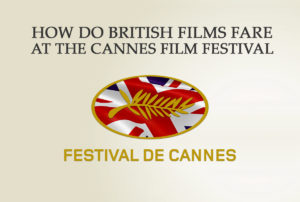
Cannes is currently in full swing, following the same annual pattern with sales agents selling, buyers buying and filmmaking drinking.
Two of this year's hottest festival films are British films, American Honey from Andrea Arnold and I, Daniel Blake from Cannes veteran Ken Loach, both of which are up for the highest award in Cannes, the Palme d'Or.
One in five wins and one in ten nominations
Since the first Cannes Film Festival in 1939, 159 British films have been nominated for a Palme d'Or. In fact, out of the 69 festivals to date, only 14 haven't featured at least one British film 'in competition'.
While under 10% of Cannes-nominated films have been British, over 18% of wins have gone to British films (16 films at the time of writing), meaning that the Brits seem twice as good at winning than taking part.
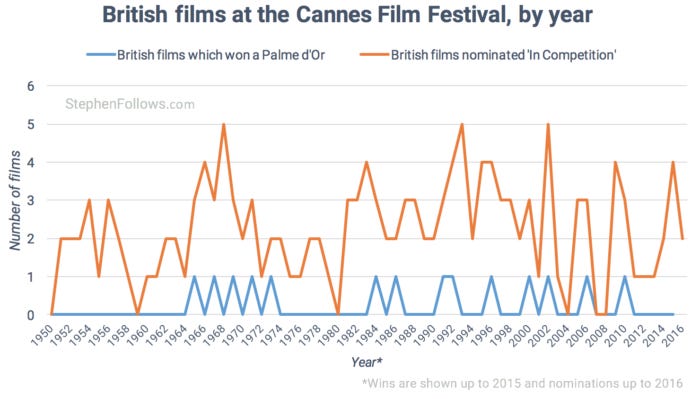
The British share of Palme d'Or wins grew significantly towards the end of the last century, and from 2000 and 2010 included, British films took 30% of Cannes wins (but still only 9.5% of the nominations).
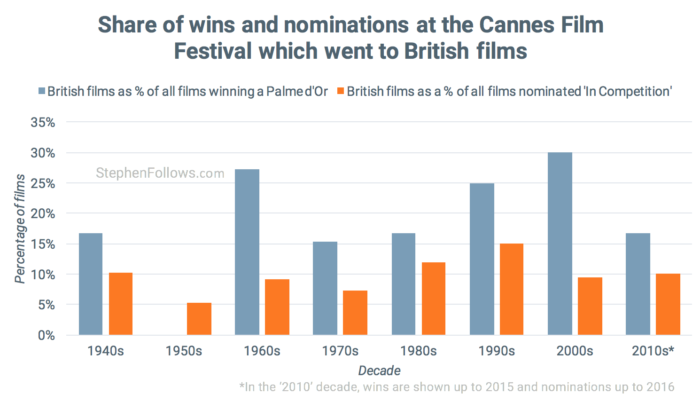
At first glance it may appear that Brits are currently performing below average by the measure of their share of Palme d'Or wins. However, if either of this year's two British entries win, it will take our share of winners in the 2010s from 17% (i.e. winning one out of six awards 2010-15) to 29% (i.e winning two of the seven awards 2010-16). If this happens, then the 2010s would almost match the Brits' best decade to date, the 2000s.
The Brit Factory
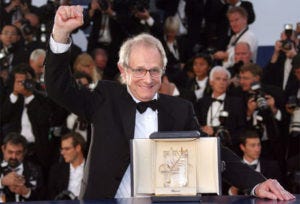
Ken Loach is by far and away Britain's most prolific Cannes director, having been nominated 13 times, including this year.
Other directors who have had repeated Cannes nods include James Ivory and Mike Leigh (with five nominations each), Lindsay Anderson and Peter Greenaway (with four nominations each) and three apiece for Joseph Losey, Nicolas Roeg, Alan Parker, Jerzy Skolimowski, Michael Winterbottom and Andrea Arnold.
What's topping the Brit Parade?
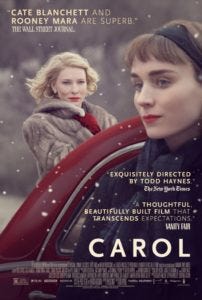
According to film critics, the best British film to be nominated at the Cannes Film Festival appeared last year and was Todd Haynes' Carol.
Although the film came from London-based Number 9 Films, Carol is set in 1950s New York, was directed by an American and starred Cate Blanchett, Mara Rooney and Sarah Paulson. Therefore, I suspect that few people would have pegged Carol as a British film. This raises an interesting question - what exactly do we mean when we say a film is 'British'.
For this article, I've sidestepped the philosophical debate by using the nationality classification stated in the official Cannes festival programme.
[table id=84 /]
Notes on British films in Cannes
Had I used IMDb to determine the country of origin, I would have had to include an additional 43 films within the count of UK films at Cannes. For example, in this year's competition, IMDB and Wikipedia credit three films as coming from the UK (I, Daniel Blake, American Honey and Loving) whereas in the official Cannes site it's just two (I, Daniel Blake and American Honey).
Epilogue

One of the features of Cannes is the International Village, where most countries have a tent to promote their country to the industry and also provide a home for native filmmakers. The UK tent is notorious for housing UK-based filmmakers who spend the whole festival just talking to Brits who live and work in the same town as them.
If you are feeling like you're missing out on the Cannes experience this year then fear not - I have started to jot down some of the things I've overheard said in the UK tent. I promise these are verbatim conversations by British filmmakers in Cannes...
“Stick it in a box and people will buy it” “Cool, so a physical release on DVD?” “No, a metaphorical box”
“I’m doing a private screening this afternoon in my flat. I can see if I can squeeze you in, if you want to come?”
[Two people who have made enthusiastic small talk for about ten minutes - about the weather, parties, films - and then they got onto what they do for a living. It turns out they’re both composers. The disappointment in both of them was palpable and they parted ways soon after]
[Actor showing off about the films he’s been in] “And that film has just won an award at a major festival” “Which one?” “Best Editor”
“Who's directing?” “[Says a name] “Great, great, I totally respect him, totally. Would you consider changing to someone else?"
“I love that party. Every year I go and get so much arse”
“I’ve discovered that during Cannes is the worst time in the world to be trying to sell a film"
“Your film is the exact type we finance” “So will you fund us?” “I’m afraid not”
“And then we discovered that the producer had been lying to us the whole time” “So what did you do?” “Well, nothing, because to be fair to him we hadn’t really been telling him the truth either. Still, what a bastard!"
"There’s two ways the script could go. Personally, I think the flashbacks slow the film down but we’re happy to do that if the investors want to spend more"
"[Huge Hollywood star] is very interested. In fact, he’s completely ecstatic about the script and his agent said that he’s in as soon as we have the money for his quote"
"There’s a big investor in the background of this one who is completely willing to fund it" “So it’s fully funded?" "Well, no, he’s wants to get other people to share the opportunity and he’ll be the last in"
"I haven’t actually read the script but I really do think it could be the next 'The King's Speech'"
"The good thing is that it’s the first of a planned trilogy"
"We’ve had a breakdown of the special effects and amazingly it came in at just £5 million, which is less than half the total production budget"
It would be good to shoot in Asia so it will instantly have an original look. Or Malta"
"This is going to be a very original Richard Curtis style rom-com"
"It’s set in an ambiguously nowhere town but when you read the script it’s obviously London"


